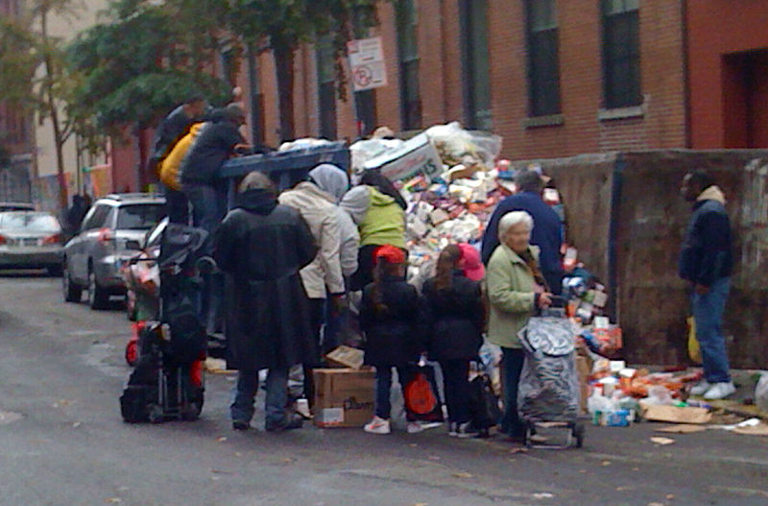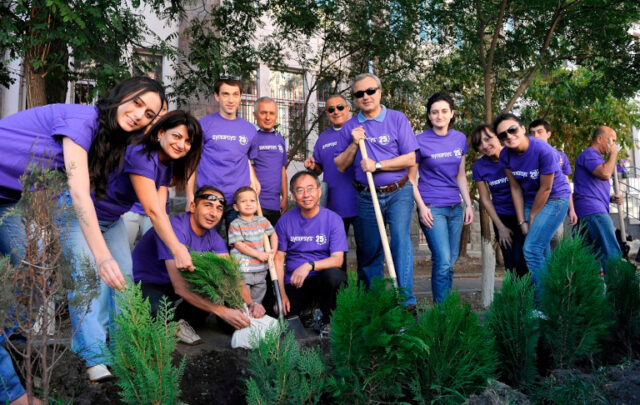The role of scavenger in nature is to find that which others have discarded or which no longer has life. Vultures are the best-known example of a species that lives off the dead carcasses of other animals. Many insects act as scavengers as well.
Human scavengers go by many names: junk removal—the junk man often reclaims things of value even as we pay him to take them away—recycling companies, and finally, those who out of economic necessity rummage through trash cans and pick out containers redeemable for a deposit that others leave behind.
In the human world, the more desperate the times, the more scavenging people are likely to do and the less stuff there will be to go around. That’s when scavenging may cross the line into theft.
I was struck by a piece on the damage being done to the South African railways as they have been poorly guarded and far less used in the wake of the COVID-19 pandemic. “[P]erpetrators removed windows, lights, seats, water taps, guard rails and the entire roof of the buildings…,” according to the report. Electric cable and track are being looted as well.
The writer does say that theft has gone on for years and accelerated recently due to lack of security. As a result travelers are having to find other ways to get around as the system continues to be degraded.
Unfortunately, I believe what is happening to railways in South Africa is a preview of the not-to-distant future practically everywhere. I do not believe we are done with the current economic downturn. As the economic slump renews itself, more and more people will become desperate for cash with which to buy food and pay for shelter, if they have any. They will lay their hands on anything salable that is accessible and that taking offers minimal chance of arrest or harm.
If you think the United States is immune, all you need to do is go back to when copper was $4 per pound. Thieves were stealing it from utility sites, homes, businesses, practically anyplace from which they could carry away copper wire and pipe. The result was a breakdown of utility equipment—including the felling of a utility pole to gain access to wire—service interruptions for phones and, in one case, the failure of a tornado siren from which copper wire had been stripped.
Copper was just one sought-after commodity. The precious metals locked up in catalytic converters for cars were a major target for thieves as well.
This assault on the physical infrastructure of a society has a way of making everybody poorer including the people who perpetrate it. That’s because when basic communication, sanitation, water and energy services are degraded or cease to function, entire communities suffer.
One way to reduce the incentives for this kind of teardown is to make sure people have the basics paid for even though they are out of work. Many countries tried to do that in the wake of the pandemic. Poor countries naturally had less to work with.
But much of that aid was premised on the idea that it would be short-term. It is only now beginning to be understood that the job losses and newfound poverty for many will likely last for a long time—and that the economic downturn due to COVID-19 might be setting off a much bigger economic time bomb of excessive business and real estate debt that would have gone off eventually, but which is now set to explode.
The “teardown” of the social fabric of modern global society, however, has been ongoing for decades as wealth and opportunity were siphoned off for the rich. Even though this reality has been laid bare—the essential workers do not work on Wall Street but in the grocery and drug stores and the hospitals of our own communities—the political class is so beholden to the rich that they cannot take the necessary action to rebalance society economically, even in the face of a crisis that demands it.
The transfer of enormous amounts of wealth from the poor and middle class to the wealthy wasn’t called theft because is was a matter of public policy. If the desperate and the poor try to take it back by tearing down our infrastructure, part of the blame will lie with those who arranged this huge transfer of wealth upward—and who even today would deny paltry payments to those most affected by the pandemic and economic crash.
Photo: People hunting through a dumpster where a Key Food supermarket has discarded spoiled food, due to power outages after Hurricane Sandy hit New York. (November 2012.) By Mr.choppers. VIa Wikimedia Commons https://commons.wikimedia.org/wiki/File:Scavenging_after_Sandy.jpg






